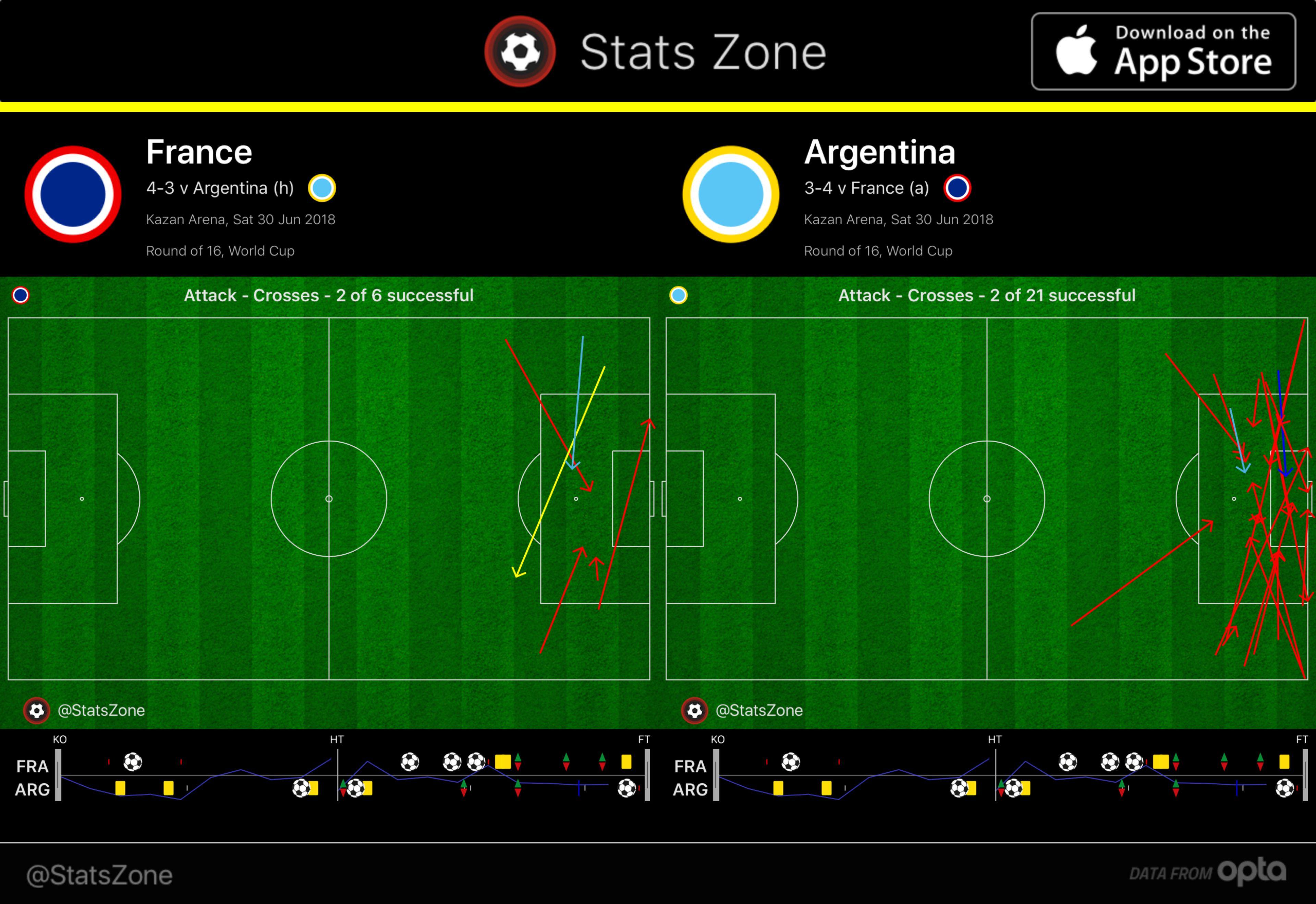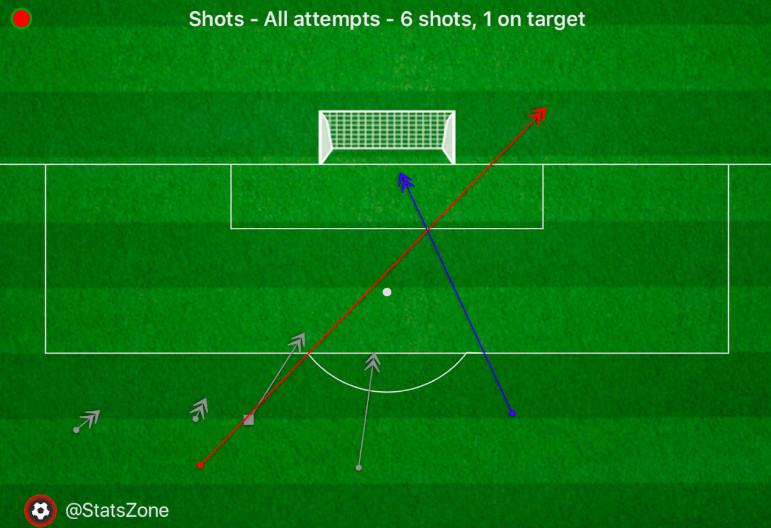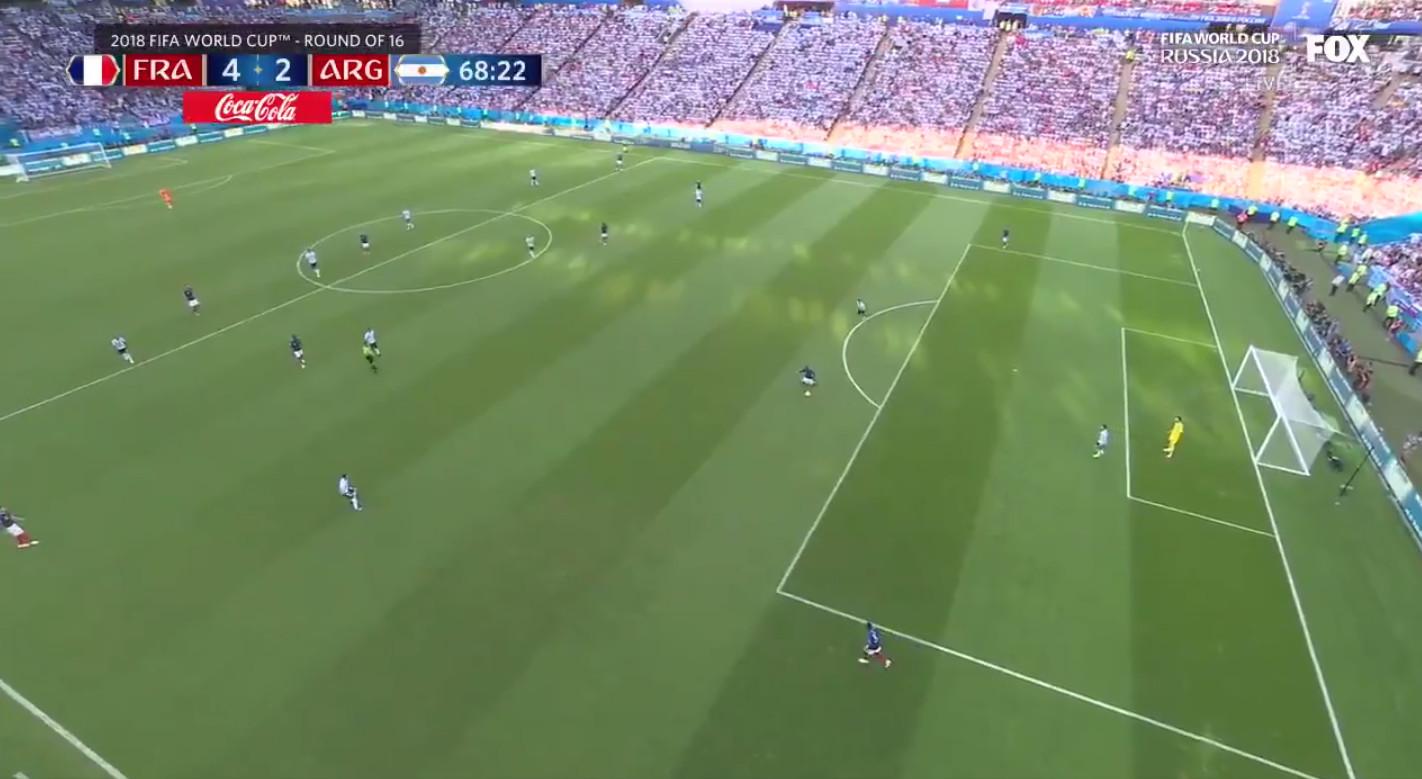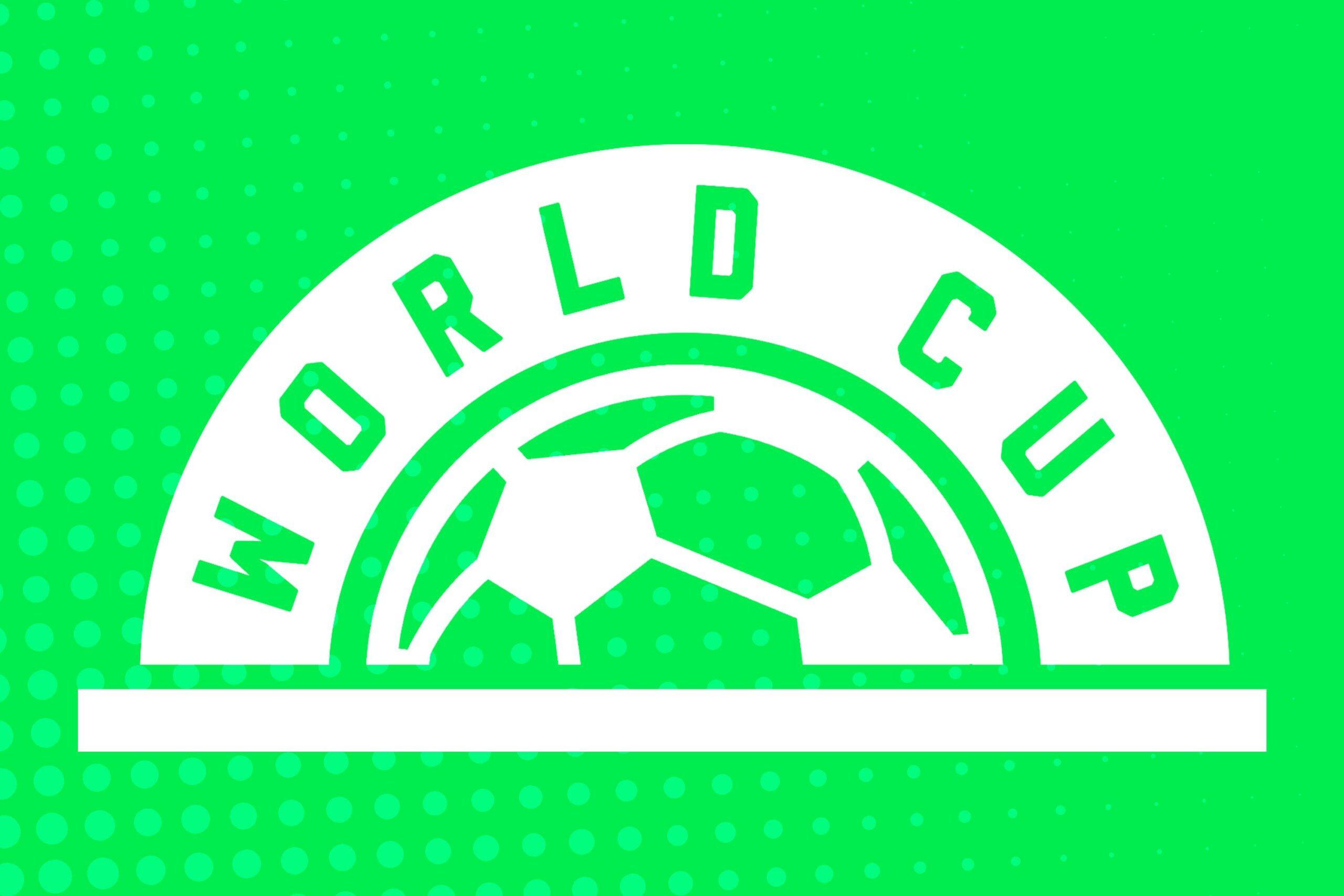Welcome to the third edition of the Front Six. Messi and Ronaldo are done while, uh, wait: Is that right? Russia? Yes, Russia are still alive.
1. Ronaldo and Messi Can’t Be LeBron
And just like that, they’re both gone. One day into the knockout stage, and Lionel Messi’s and Cristiano Ronaldo’s World Cups are over. So, who’s had the better career?
You’ve come to the wrong site if you’re expecting an answer to that. (For the record: Give me Messi every day of the week and 10 more times on Sunday because he scores just as much as Ronaldo while also being one of the best dribblers, creators, and facilitators to ever do it. But if you prefer Ronaldo’s thumping assault on goal, that’s fine, too.) However, please let the early elimination of perhaps the two greatest soccer players to ever live finally puncture the silly conversation that surrounds the sport, especially at the international level. It’s obvious, but somehow needs to still be said: The best players possess the ball for maybe three minutes per match, and individual success only impacts a fraction of overall team success.
“Even the world’s best player(s) is only 1/11 of his team,” Chris Anderson, one of the authors of The Numbers Game, told me. “This is not the NBA—where LeBron is 20 percent and then some.”
Against France, Messi assisted on two goals, but based on all the reporting coming out of the Argentina camp, he also likely influenced Jorge Sampaoli’s lineup decisions. He played as a “false nine”—starting in a striker position but then dropping back to draw the defense upfield and create space for the wingers to cut into. The issue with that: Argentina played the left-footed Ángel Di María on the left side and the right-footed Cristian Pavón on the right. Instead of creating diagonal paths directly toward goal, Argentina played 21 crosses against France … despite the 5-foot-6.5 Messi technically functioning as the team’s only striker. Their opponents, who started the 6-foot-4 Olivier Giroud up top, attempted just six:

Meanwhile, Ronaldo could not breach the sky-blue wall. Across 90 minutes, he didn’t touch the ball once in Uruguay’s box. Instead, Ronaldo resorted to randomness, as he fired off low-percentage shot after low-percentage shot, hoping one would sneak in. From Stats Zone:

Come 2022, Messi will be 35, and Ronaldo 37. Something will have gone terribly wrong if they’re still both atop the world in four years. Their peaks have passed by without either one scoring a goal in the knockout stage of a World Cup. It’s a fun fact—but that’s about it.
“It so happens that the teams with the world’s best players got beaten,” Anderson said. “And it’s too easy to read something into what is basically a small-sample-size event.”
2. Will the Real France Please Stand Up?
In the group stages, France scored three goals and conceded only one. One game into the knockouts, they’ve already notched four and given up three. However, the result probably flatters the performance. In the first half, Les Bleus took just three shots—one was a penalty, and the other two came on free kicks. Then they fell behind early in the second half, only to be saved by a once-in-a-lifetime volley from a 22-year-old center back who is playing fullback and has scored just two goals in nearly 6,000 minutes of professional soccer.
Then, of course, Kylian Mbappé decided he’d had enough of this shit and put the game to bed.
So, France scored four goals in what The Independent called “one of the greatest World Cup games of all time,” and yet it still feels like they could be better than this. After a second-half uptick, they still ended the game with just nine total shots. The wonder goals might start turning into mishits that end up in the stands, and they’re just not gonna keep converting 44 percent of their chances.
They also won’t meet another team that defends them with a death wish—no pressure on the ball, no bodies in the midfield, and a wildly aggressive back line. Four passes later, this is a goal:

Argentina’s lack of midfield cohesion and backend speed basically forced Didier Deschamps’s team to open it up on Saturday. Through the handful of counterattacks sprung by Paul Pogba or finished by Mbappé, we saw what this team is capable of, but I’m still not sure whether that’s really what they want to be. With all of this talent, though, a minor identity crisis might not even matter.
3. Uruguay: Still Uruguay
With a cane now keeping him upright, Óscar Tabárez is 12 years into his stint as Uruguay manager, and his dudes know exactly what to do. They took five shots. They conceded 20. And they won the freaking game.
Here’s your latest lesson in the importance of shot quality: Uruguay registered an average of 0.14 expected goals per shot, while Portugal hit-and-hoped their way to an average of about 0.05. In other words, the average Portuguese shot had about a 5 percent chance of finding the back of the net. Ronaldo and Co. resigned themselves to a likelihood of scoring lower than Russia’s chances of winning the World Cup.
Four games in, and Uruguay’s conceded just one goal while scoring seven. Atlético Madrid might be the best defensive side in club soccer, and Tabárez has the luxury of slotting their pair of center backs, Diego Godín and José Giménez, right into the middle of his back line. This team won’t overwhelm the balance of chances in the way that France should be capable of, but they’re the hardest remaining team to break down, and as their opponents creep forward out of frustration, Luis Suárez and Edinson Cavani wait for the right moment to punch back. This has to be the greatest give-and-go of all time:
Looking back on this shape, it’s like they were already grinning at the pointless pass maps Spain would produce a day later.
At this point in the tournament, it’s all chaos. You’re just a trio of wins away from a World Cup, but so much shit (wild deflections, unfortunate injuries, wacky weather, confusing refereeing decisions, frustrating yellow-card suspensions) can happen over a three-game stretch, and the only thing you can really control is who you are. Uruguay knows that better than anyone.
4. Tiki Taka Is Dead. Long Live Tiki Taka.
Spain really were gonna try to win this one without taking a shot, huh? They scored the opener on an own goal, and if Russia didn’t win a penalty late in the first half, you can’t convince me that they wouldn’t have tried to just play a game of keep-away for the rest of the match.
Spain probably should’ve won this game—the only shot on target they conceded was a penalty, while they tested Igor Akinfeev nine times—but that doesn’t mean they went about it in the right way. Passing is pointless without the end goal of, well, a goal, and Spain’s incredibly lopsided possession barely produced anything of note until the second half of extra time. The data company Opta keeps a stat called “big chances,” which it defines as a “situation where a player should reasonably be expected to score usually in a one-on-one scenario or from very close range.” La Roja created two big chances, and both came in the last 15 minutes of the match. Too much of the game was spent recycling the ball 35 yards from goal with 11 Russian players happy to sit back and let them do so.
Of the 1,006 passes Spain completed—a still-unbelievable number just a few hours later—only 11 reached the penalty area. A lopsided game between two teams with extreme styles spits out plenty of bizarre data points, and none were more absurd than this:
Russia defended well, but once they scored, defending was the only thing they did. From the 41st minute on, they took two shots and completed 91 passes. They played for penalties, and it worked. But well, it shouldn’t have. This team is just not very good, and they’re still here because nine of their 12 shots on target have ended up in the back of the net. You can win a game with 21 percent possession and 17 fewer shots than your opponent, but it’s not a viable long-term strategy.
Before the tournament, most of the predictive models liked Brazil and Spain as the two big favorites—yes, data was less bullish on Germany than everyone else—but how do you account for a team that fires its coach one day before the tournament starts? Over the past few years, Julen Lopetegui had turned La Roja into a team that would overload one side of the attacking third and overwhelm opponents with forward momentum. Except now he’s working for Real Madrid. On Sunday, Spain certainly looked like a side without any real direction, just passing and passing and passing until someone got bored. (Where the hell was Thiago?) With Andrés Iniesta retiring and nine other players on the roster aged 28 or older, it’s the end of an era. But more than that, it’s a missed opportunity.
5. Shootouts Are Hell
Despite what the Fox commentators might tell you, penalty shootouts are less a test of mental strength, and more an attempt at replacing a random number generator with human emotion. There’s no real data that helps to predict penalty success—other than the coin toss right before. The team that elects to shoot first wins 60 percent of the time. Weirdly, bookmakers typically don’t adjust their in-game odds after the coin toss. That wouldn’t have mattered on Sunday, though, as both teams who went second ended up winning.
A couple of other penalty-related notes:
- During the past eight years, according to Ben Lyttleton, who wrote Twelve Yards: The Art and Psychology of the Perfect Penalty Kick, Igor Akinfeev hadn’t saved a penalty for his club team CSKA Moscow in either the Europa League or the Champions League. He saved two against Spain.
- Penalties are scored 75 percent of the time. Keepers make a save 16 percent of the time. And in the remaining 9 percent, shooters miss the goal.
- Despite that, per Lyttleton, Croatia’s Danijel Subasic has conceded a goal on only 58 percent of the penalties taken against him. Against Denmark, he saved three of five.
- With Kasper Schmeichel’s two shootout saves (to go along with his save against Luka Modric in the dying minutes of extra time), Denmark vs. Croatia was the first shootout in World Cup history in which five total saves were made.
In the Champions League, many teams come into knockout matches with knowledge of each penalty taker’s tendencies and histories. In the 2008 Champions League final, Chelsea used the advice of economist Ignacio Palacios-Huerta—the guy whose study revealed the impact of the coin toss—in a shootout against Manchester United. They lost, but the only penalty saved by United’s Edwin van der Sar was the final one taken by Nicolas Anelka, who ignored Palacios-Huerta’s advice. And in the 2016 final, Real Madrid identified that Atlético Madrid keeper Jan Oblak had a tell: He’d take a slightly early step toward whatever side he was going to dive toward. Real won the shootout, and you can actually see the players delaying their attempts until the last moment:
“Data analysis won the Champions League,” Simon Kuper and Stefan Szymanski wrote of the 2016 match in Soccernomics. Maybe that’s what led to all the saves in the Denmark-Croatia game, too. Or maybe it was just random. With penalties, it’s hard to tell.
6. Things Have Officially Gotten Weird
Before the round of 16, Spain were sizable favorites to make the final, thanks to what looked like an easy draw. With four of the five best teams remaining according to FiveThirtyEight’s SPI rating on the other side of the bracket, the Spaniards had a 37 percent chance to make the final, while no one else on their half was over 18 percent. Well, now they’re gone, and all hell will break loose—no matter what happens.
Croatia, Russia, Switzerland, and Colombia have never been to a World Cup final. England haven’t been there since 1966, and Sweden haven’t returned since 1958. Yet, one of those six teams is guaranteed to make the World Cup final.
With two matches still to go on their side, Croatia are currently third-favorites to win it all! Only France and Brazil have better odds. Despite nine points in the group stages, the Croatians haven’t been totally convincing, but then again, who has? From open play, their expected-goal differential in the group stages was plus-1.1, but it was aided by a Willy Caballero brainfart and Argentina’s entire back line and midfield giving up and allowing Ivan Rakitic to tap the ball in from close range in the waning moments of the match. The Croats have been fine, but for a team with a world-class midfield, they have a frustrating tendency to shuffle the ball out wide and rely on crosses from less talented players. Crossing is inefficient—think about how many you see and how few lead to goals—so why not have your most talented players, Rakitic and Modric, create higher-quality chances through the middle?
However, at this point, much like with France, it might not matter that they’re not optimizing their attack. Croatia will be heavy favorites against Russia, and if they take care of business there, they’ll be 180 minutes from the title. No matter what style they’re playing, a side with Rakitic, Modric, and a host of other guys from Champions League clubs will always be able to do just enough to win two more games.
“It’s football’s March Madness,” Anderson said. “Luck matters an awful lot at this stage of the tournament, given the format.”
Before the tournament, FiveThirtyEight’s odds gave it a 27 percent likelihood we’d get a first-time winner. Now, that number is up to 41 percent. While it’s not quite a coin flip yet, the club of World Cup winners might soon have a ninth member. Or maybe, just maybe, football is coming home.
